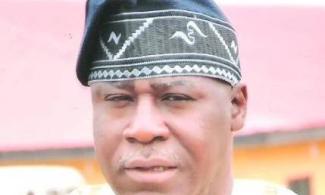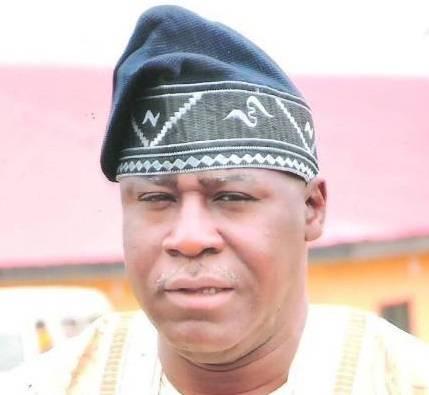
In all these synoptic rendition of resistance movements, it should be clear to all, that in no single situation was there a one hundred percent agreement. A just cause would raise its own soldiers that would fight its battles, regardless of the shenanigans of the champions of the status quo. The conditions of subjugation are catalyst variables to the germination and sustenance of resistance, in whatever format. Nigeria has entered the fray.
"Each generation must, out of relative obscurity, discover its mission, fulfill it, or betray it."
- Frantz Fanon
"On April 29, 1945, Italians found the executed dictator Benito Mussolini strung up like a prosciutto in a Milan square, his mutilated body the proof that his tyranny had ended. Four days earlier, Italian partisans, fighting alone and with Allied forces, had triumphed over the last Nazi German and Italian Fascist strongholds
Italy was not the only country to have an armed anti-Fascist movement during World War Two. Across Europe, Resistance fighters organized to defeat Nazi occupiers and their homegrown collaborators. Yet the Italian Resistance (active September 1943-April 1945) developed in the face of over twenty years of dictatorship. Its moral and political importance for Italians was such that it was deemed the very foundation of the new Republic that rose from the war's ashes."
Ruth Ben - Ghiat, a professor of History at New York University in May 2015, had published in Huffpost this rendition of History as it related to the end of a dictator and collaborator with the invaders of Italy. On April 28, 1945, day before, Benito Mussolini, his mistress Clara Petacci, Nicola Bombacci, founder of Italian Communist Party and an ally of Mussolini, and Alessandro Pavolini, a journalist, essayist and lawyer had been captured and shot by partisans near Lake Como. Their bodies were taken to Piazzale Loreto Square in Milan and hung upside down from the roof of an Esso petrol station, located between Corso Buenos Aires and Viale Andrea Doria. Achille Starace was joined to them in the evening of April 29, 1945 after a short trial.

The way the Fulani hegemonists anchored by Mohammed Buhari under the auspices of All Progressive Congress (APC) are trying to run over other Ethnic Nations in Nigeria through acts of ethnic cleansing using the Nigerian Armed Forces, The Nigeria Police Force, State Security Agencies and other instruments of State as well as tacit support for Fulani herdsmen's serial acts of murder, rape, arson is not unprecedented in History. It happened before and it is happening again.
It happened under Adolf Hitler in Germany under the auspices of National Socialist German Workers Party (NAZI). Just as Mohammadu Buhari and his racist party leaders in APC are planning to use RUGA to create space for Fulanimen that are never autochthonous to any part of Nigeria, Hitler and his NAZI party used "Lebensraum," a German word meaning "living space" as official policy to invade other lands beginning with Poland on September 1, 1939.
After the occupation of Poland in 1939, in swift successions, Denmark fell in April1940, Norway fell also in April 1940. It was Belgium's turn in May 1940. Within the same month of May 1940, the Netherlands, Luxembourg and France fell to Hitler and Germany. In April 1941, it was the turn of Yugoslavia and Greece respectively. The German invasion and military occupation of Italy was between September 1943 and April 1945,
After the occupation of Aso Rock in 2015 by Fulani hegemonists led by Mohammadu Buhari, coordinated attacks and destruction were visted on ancestral lands of the Tiv, Igala, Jukun, Tangale, Kataf, Terawa, Waja, Kumo, Bolewa, Baju, Bakhulu, Tula, Cham, Lunguda, Dadiya, Banbuka, Karekare, Savawa, Wariawa, Zulawa, Vergam, Ankwei, Angas, Jawara (Jarauci), Birom, Mumuye, Mango, Eggen, Igala and many more.
These have been extended to the Yorùbá homesteads in Kwara, Kogi, Oyo, Ogun, Osun, Ekiti, Ondo and Lagos States. The Alaigbo have had their own shares in Enugu, Ebonyi and Abia States. The Edo Nation is living in perpetual fear of the Fulaniman protected and enabled by the Nigeria Armed Forces, the Police and the State Security Agencies. The Ijaw Nation has remained in perpetual war waged against them by the Fulaniman and the Nigerian State.
As Hitler and his racist army piled up victories across Europe, creating the so - called "Lebensraum", the "living space" for the Germans like Buhari is using the Nigeria Armed Forces to create RUGA among other methods, patriotic citizens of the invaded lands began to organize resistance as it has begun, albeit more lackadaisically, across the geographical delineation called Nigeria. The resistance against the Fulani domination of the Yorùbá Nation, and other ethnic Nations in Nigeria has just started. It would blossom in the coming months.
As it happened in Luxembourg and Poland, where the Germanization of institutions, power control centers, frontal cultural wars were unleashed against the owners of the land, it is happening in Yorùbá land too. Our Customs are populated by foreigners in Fulanimen and their Hausa tools. They control our Immigration and allow who they want to cross into our land. They control the Police and the Security Agencies. They are installing Emirs across our Yorùbá Nation.
Their collaborators from the Bourdilon Heights anchored by Bola Ahmed Tinubu and their sentries across Yorùbá Nation are further empowering the Fulani Emirs in our land, giving them the control of our waterways in Lagos State by appointing one of them as Commissioner in charge. They believe that they have the Yorùbá Nation by the jugular. They believe they are not touchable. They believe they could toy with not just our Yorùbá Nation and our people, they are confident they could play numbers with our freedom, our liberty, our destiny. But as it happened in Luxembourg, Poland and elsewhere, their days are numbered.
There was the Greek National Resistance in Greece. The first resistance groups started appearing a few months after the beginning of the occupation of Greece, such as the Grivas Military Organization, founded in June 1941. There was "Freedom", led by Colonel Dimitrios Psarros, founded in July 1941. Also, "Supreme Committee of Cretan Struggle" (AEAK) was founded in June 1941. With membership of 1.8 million in 1944, the National Liberation Front became prominent.
The Armia Krajowa (AK) or Home Army was the dominant Polish resistance movement in Poland. It eventually absorbed most other Polish underground forces. Its allegiance was to the Polish government-in-exile, and it constituted the armed wing of what became known as the "Polish Underground State". They manufactured their own weapons and increased their reach, going after collaborators and the leaders of Army of occupation.
There was La Résistance in France which consisted of the Gaullist Movement anchored by Charles De Gaulle and National Council of Resistance (CNR) which was a conglomerate of leaders of all separate and fragmented Resistance organizations gathered and coordinated by Jean Moulin. De Gaulle who had opposed his former boss, Marshall Phillippe Petain for collaborating with Adolf Hitler as the head of Vichy Regime, was sentenced for treason in absentia. He escaped to North Africa to raise an Army against the collaborators and the invaders of his fatherland.
In Norway there was Milorg which started out as a small sabotage unit and ended up building a full military force in time for the liberation. There was also Company Linge, a special operations unit that specialized in coastal insertions and combat. Milorg (abbreviation of militær organisasjon - military organization) was the main Norwegian resistance movement during World War II. Resistance work included intelligence gathering, sabotage, supply-missions, raids, espionage, transport of goods imported to the country, release of Norwegian prisoners and escort for citizens fleeing the border to neutral Sweden.
In Yugoslavia we had the royalist Chetniks and the more enduring Partisans who were ideological communists. The first communist military resistance unit, the Sisak Brigade, was established in the Brezovica Forest near Sisak (in today's Croatia), on 22 June 1941, the day Nazi Germany invaded the Soviet Union. It was the origin of the group eventually led by Josef Tito that liberated Yugoslavia and ruled it afterwards.
In Luxembourg, there were twelve Resistance Movements recorded by History. The most prominent of them include Lëtzebuerger Scouten (LS), Lëtzeburger Patriote Liga ("Luxembourgish Patriot League", LPL), PI-Men, Formation des Patriotes indépendants luxembourgeois ("Formation of independent Luxembourgish patriots") and Lëtzeburger Freihétsbewegong ("Luxembourgish Freedom Movement", LFB). The activities of the Resistance, as described in a Gestapo report from 1941, consisted of "illegal" meetings, propaganda activities, printing flyers, procuring weapons and explosives, supporting family members of arrested persons, organising illegal emigration and joining other countries' armed forces
Within Belgium, resistance was fragmented between many separate organizations, divided by region and political stances. The resistance included both men and women from both Walloon and Flemish parts of the country. Aside from sabotage of military infrastructure in the country and assassinations of collaborators, these groups also published large numbers of underground newspapers.
There were three large groups in Belgium: “Groep G” as an example from an organisation which was stimulated by the British sabotage service; “De Partizanen” as the armed branch from the Kommunistische Partij van België (KPB), the communist party and the “Geheime Leger” or secret army as exponent from resistance led by former Belgian military personnel.
The Italian resistance movement, Resistenza italiana or just la Resistenza, is an umbrella term for Italian resistance groups during World War II. It was opposed to the forces of Nazi Germany as well as Nazi Germany's puppet state local regime, the Italian Social Republic, especially following the German invasion and military occupation of Italy between September 1943 and April 1945, though the resistance to the Fascist Italian government began even prior to World War II. Known as partisans, or partigiani, the brutal conflict they took part in is referred to as the Italian Liberation War (when referring to the part they took in the Italian Campaign against the Nazi Germans and the Axis).
In all these synoptic rendition of resistance movements, it should be clear to all, that in no single situation was there a one hundred percent agreement. A just cause would raise its own soldiers that would fight its battles, regardless of the shenanigans of the champions of the status quo. The conditions of subjugation are catalyst variables to the germination and sustenance of resistance, in whatever format. Nigeria has entered the fray.
This generation, in the words of Frantz Fanon in his book, "The Wretched Of The Earth," has discovered its own mission, which is to be free and guarantee freedom, liberty as well as self determination for the coming generation. For this generation, there are only two choices in this regard - betray this mission or fulfill it. We, the Káãro Oòjíire, dare not forget that we are the inheritors of a spectacular socio - political engineering that created a democratic monarchy that has bequeathed to the World the belief that the rights of man come not from the generosity of the State but from the hand of God and man himself.
Destination is Oòduà Republic.
"In the long history of the world, only a few generations have been granted the role of defending freedom in its hour of maximum danger. I do not shrink from this responsibility - I welcome it.". John F. Kennedy, Jan. 20, 1960.
© Rèmí Oyèyemí